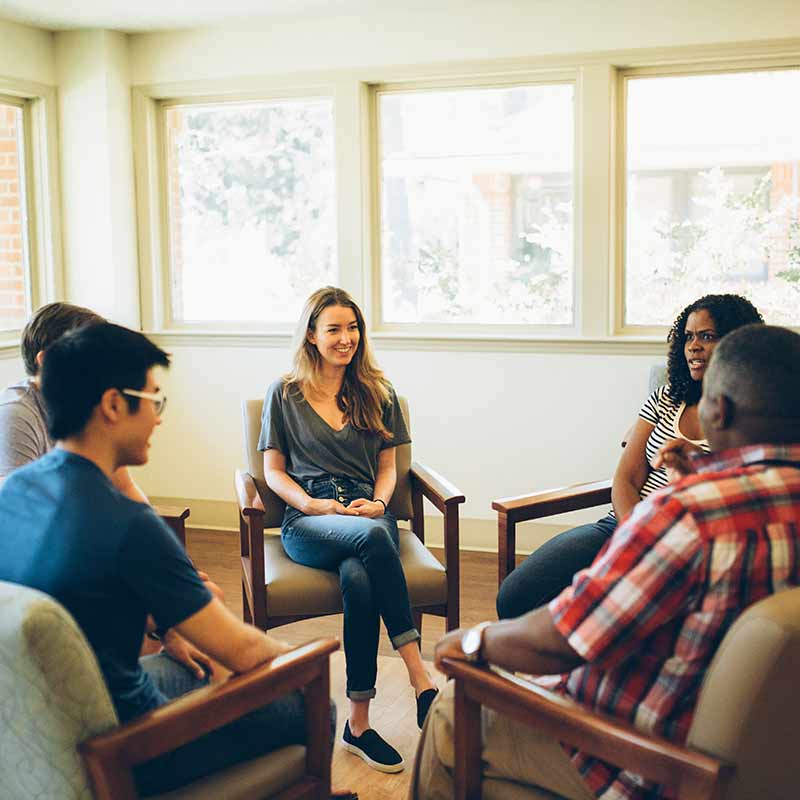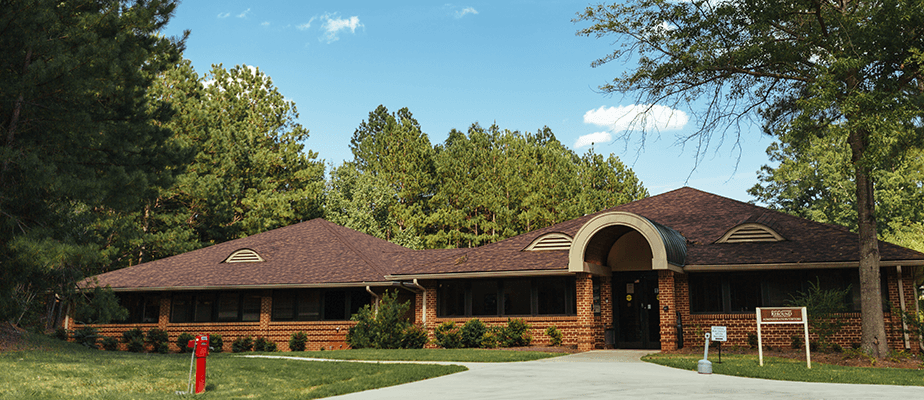Rebound Behavioral Health Hospital helps older adults who are struggling with late-onset depression build a strong foundation for long-term stability. Serving greater Charlotte and Lancaster, Rebound is a trusted mental health treatment center for seniors in South Carolina.
More About Late-Onset Depression
Learn more about late-life depression and treatment at Rebound Behavioral Health in South Carolina
It’s been estimated that late-onset depression occurs in approximately 6% of people over the age of 65 in any given year. This means that about 2 million older adults are experiencing symptoms of depression, a mental disorder that causes changes in behavior, mood, and cognition every single year. If you or a loved one is struggling with late-onset depression, you may feel sad a great deal of the time, unable to stop crying even when there’s nothing outwardly wrong. You may find that you’re avoiding activities and people that once brought you pleasure, preferring to stay home alone. You may feel helpless, worthless, as though you’ve used up the very best of your days. You may find your thoughts plagued with fears about your health, money, or other stresses. Life over the age of 65 doesn’t have to feel so hard. Depression is a very treatable illness and our leading depression treatment center for seniors is here to help.
At Rebound Behavioral Health, we have considerable experience helping seniors who have been suffering with depression. We can provide the personalized care that will help you or your loved one to live a much happier and more satisfying life.
How to Help a Loved One
Helping a loved one get treatment for late-onset depression
If you’ve been watching your loved one struggle with late-onset depression, you may be helpless and unsure how best you can help. You may not know how to approach the situation or may not know that late-onset depression is not a normal part of aging. It can be very hard to know how to approach this topic with your loved one. Here are some tips for gently guiding your loved one into seeking treatment at a hospital:
Educate yourself: One of the biggest barriers to treatment of late-onset depression is that the symptoms may appear different than depression in other age groups. Learn the symptoms of late-onset depression so that you can appropriately suggest to your loved one that he or she may need help.
Reassurance: It’s important to let your loved one know how much they are loved and how much they have to look forward to. Depression can cause tunnel vision and lead your loved one to believe that he or she does not have any worth. Assure your loved one that there are proven treatments for depression available and that you will be beside them every step of the journey.
Treatment options: Research the options for treatment of late life depression. An inpatient treatment center may be one of the best options for your loved one. Call and speak to an intake counselor and ask them any questions you have. See if you can arrange a tour with your loved one to alleviate any anxieties you each may have about inpatient treatment.
Why Consider Treatment
Why consider inpatient treatment for late-life depression at Rebound Behavioral Health in South Carolina
When you’re struggling to get up in the morning, feeling as though life may no longer be worth living, it’s time to seek help. Contrary to popular belief, late-onset depression is not a normal part of the aging process. It does not make you “weak,” or “flawed.” Late-life depression is a serious mental health challenge. It can negatively impact a person’s physical, psychological, and social well-being. It’s very important to understand the signs of late life depression and seek the treatment you need.
An inpatient treatment center that has experience working with older adults struggling with late-onset depression can be one of the most effective ways of coping with this disorder. By removing yourself from the stresses and pressures of daily life, you’ll be able to focus on the one thing that matters most – getting well. An inpatient treatment center will be able to treat all aspects of your challenges, making sure all your needs are met and adjusting medications as needed.
Our Philosophy
Rebound Behavioral Health’s treatment philosophy
As one of the best hospitals treating seniors with depression, we offer a variety of treatment approaches and levels of care for adults and older adults. Our program offers a multidisciplinary approach to late-onset depression that allows us to fully treat each client who comes to us for help. Our staff is here to partner with you to help create treatment goals for your stay with us as we believe every person who comes to us will construct their own path to recovery. We draw on your strengths and values to form your unique, individualized plan of care that aims to meet all of your needs – mind, body, and spirit.
Treatment Methods
Types of treatment for late-onset depression at Rebound Behavioral Health
Before you begin your treatment for late-life depression, you’ll first complete a series of assessments. This process will ensure that we have identified all of the obstacles that have been preventing you from living a healthier and more satisfying life. Our medical examination will let us determine if any medical conditions are contributing to your mental disorder. Our psychiatric evaluation will allow us to determine the severity of your depression and any co-occurring mental disorders you may have. We’ll take the results of these evaluations and sit down with you to create a plan of care for your stay with us.
Medication management can be very helpful to older adults struggling with late-onset depression. Our doctors will examine any medications you may be taking to make sure that they’re not interacting to cause depression. In addition, you may use an antidepressant medication to allow you to best focus on your recovery from late-onset depression.
Individual therapy allows you to spend private time with a therapist to discuss the struggles you’ve been facing. Our therapists often use cognitive-behavioral therapy (CBT) and other techniques as we work on ways of managing the stresses in your life, help you overcome some of the grieving you may be doing, and teach you ways to prevent a relapse of depression.
Group therapy can be very helpful for older adults struggling with depression. As many older adults isolate themselves as they become increasingly depressed, the social interaction from group therapy can be very beneficial. You’ll work with others experiencing similar challenges so that you can all grow, learn, and heal together.
Family therapy is very important for the treatment of late-onset depression. Many older adults rely upon loved ones to help them perform certain activities of daily living, and family members should learn ways in which to support their loved one. Family sessions will focus upon education about late-onset depression, treatment options, and recovery, as well as ways in which your loved ones can help you. We’ll also discuss post-discharge recovery plans during family sessions.
As a holistic treatment center, Rebound Behavioral Health Hospital is proud to offer a variety of experiential therapies to complement traditional therapeutic techniques. These include:
- Massage therapy
- Exercise therapy
- Activity therapy
- Relaxation therapy
- Music therapy
- Pet therapy
- Spiritual counseling
- A.A. and N.A. groups
Discharge & Continuing Care
Continuing your recovery from depression after completing inpatient care
As your time for discharge draws close, you’ll meet with a discharge planner and your treatment team to determine the next best steps in your care. Depending on your needs, you may choose to transfer into our partial hospitalization program (PHP) or intensive outpatient program (IOP). This will allow you to slowly reintegrate back into your community while focusing on your recovery during the day. If you are prepared to transition out of care, we can provide you with referrals to traditional outpatient treatment providers and other community resources in the Charlotte and Lancaster area.


















